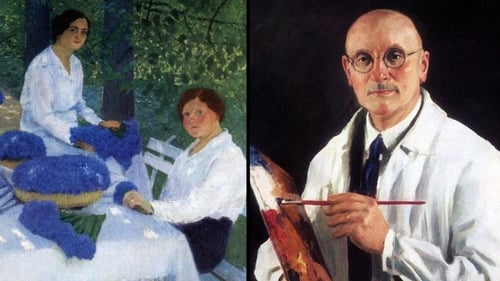Viktor Dobronitsky
Birth : 1944-05-26, Moscow, USSR (Russia)

Director of Photography
The film is about why Fedor Chalyapin was actually expelled from his native country and left Russia forever.

Director of Photography
Kheifets - this is the name given in Gitis slang to those who graduated from the workshop of Leonid Efimovich Kheifets. The last of the Mohicans, one of the most significant Russian directors of the late twentieth - early twenty-first centuries, master, teacher. A student of Knebel and Goncharov herself. Arbuzov and Zorin called him "the young man". Ravenskikh and Andrei Popov were friends with him. Oleg Borisov, Sergey Shakurov, Alina Pokrovskaya worked with him. Today we can confidently say that the Heifetz school exists. And how many of today's stars proudly say: I am a student of Leonid Efimovich! Derevianko, Petrov, Pal, Ardova, Tolstoganova. What did he teach them?

Director of Photography
This nonfiction film is devoted to two great Russian artists. Instead of focusing on the history of the mundane, everyday friendship between Chekhov and Levitan, the film emphasizes the affinity of their creative efforts and the interplay of their similar, yet so different, personalities. What the authors of the film offer to their viewer is no idyll: it is the world full of nuance and contradiction that reveals itself against the backdrop of the era, at the same time uncovering the most subtle peculiarities of the two great creators. The cross-pollination of two creative methods and the interconnection of the two geniuses represent the leading motif of the film.

Director of Photography
Russian life in 1917 was not limited to civil confrontations, shootouts, demonstrations and rallies. Many people lived, or at least tried to live peacefully and constructively. The great Fyodor Shalyapin sang and staged opera performances in Moscow and Petrograd; director Vsevolod Meyerhold played the Lermontov Masquerade on the stage of the Alexandrinsky Theater, and Anna Akhmatova and Sergey Eisenstein applauded him. The future writer Konstantin Paustovsky eagerly absorbed impressions about the life of summer and autumn Moscow. And in the Moscow region estate Lopasnya-Zachatievskoe a happy accident led to the discovery of the longest manuscript by A.S. Pushkin, who was considered lost. The film is built on cinema and photo chronicles of a century ago.

Camera Operator
Oscar is the story of the life of the famous artist Oscar Rabin against the background of three decades of Soviet history; it is a story about a successful experience of standing up against a regime with the help of paint and brushes. It is the story of non-violent resistance against evil, of the boundaries of compromise, about how people try to maintain their inner freedom when they are living in a country that is not very free. The film uses many unique newsreels and other archival materials being shown for the first time. Along with Oscar Rabin, featured in the fim are Lyudmila Ulitskaya, Vladimir Sorokin, Evgeny Kisin, Boris Akunin, Maya Turovskaya, Vladimir Paperny, Erik Bulatov, Oleg Tselkov, Vitaly Komar, Vyacheslav Ivanov, Mihail Chemiakin, Igor Guberman, Donald Rayfield, and Adam Michnik.

Director of Photography

Director of Photography
The elegy film is dedicated to the memory of the remarkable Soviet and Russian poet, translator and writer of the second half of the twentieth century, Bella Akhmadulina.

Camera Operator
A musical film dedicated to the soldiers fighting at the front line.





